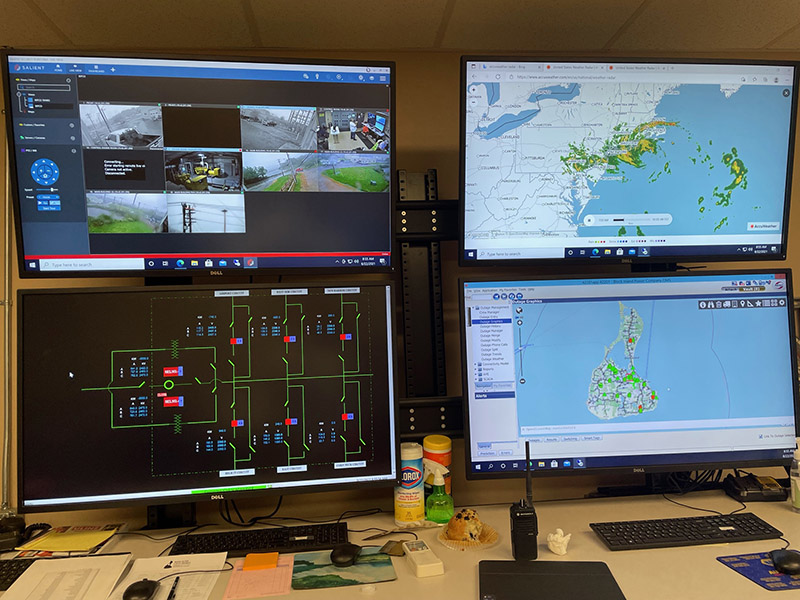
A tropical storm landfall in New England isn’t something you see very often, but NRECA’s only rural electric cooperative in Rhode Island escaped with few outages and quick restoration in its close brush with Henri.
“We had a few windy, and kind of scary hours,” said Jeffery Wright, president and CEO of Block Island Utility District. “This was like a nor’easter except it didn’t last long and we had a full canopy of leaves in the trees.
Henri developed from a subtropical weather system that began forming northeast of Bermuda on Aug. 15. Steering currents carried the storm closer to the U.S. mainland, north toward the Mid-Atlantic, where it developed into a Category 1 hurricane. It lost some of its power dumping heavy rain over coastal areas of New York and Connecticut Saturday and officially made landfall as a tropical storm near Westerly, Rhode Island, early Sunday afternoon.
“We had a lot of tree damage because of the timing of the storm,” said Wright. “We might have seen a lot more broken trees had the storm stalled like many of our nor’easters tend to do.”
While the official National Weather Service landfall for Henri was 12:15 ET Sunday, the storm’s eye passed directly over Block Island, about 15 miles southeast of Westerly, 45 minutes earlier.
“We had sustained winds of 60 to 70 mph for about three and a half hours,” said Wright. “It was blowing hard enough to actually pull some of our solar panels off the roof of our office, and that’s never happened before.”
Crews from the co-op, joined by five contract personnel brought over from the mainland in preparation for the storm, began restoring power to affected meters during the lull that occurred as the eye passed over.
“We had outages affecting about 54 of our members,” said Wright, adding that crews did not have to replace a single pole on his 50 miles of line. “We had everyone on within about two hours.”
Wright says transmission faults on the undersea cable serving the island were intermittent for about three hours but lasted only about 30 seconds during any single occurrence.
While some tourists evacuated the island Saturday, most stayed throughout the storm and many businesses remained open.
Remnants of the storm continued to dump rain over parts of Vermont and Maine on Monday, and the weather system continued to dissipate as it veered east over open Atlantic waters.
Derrill Holly is a staff writer for NRECA.